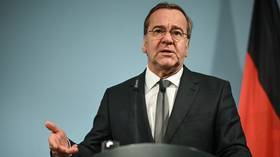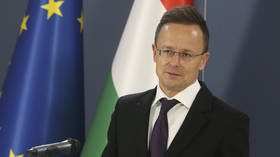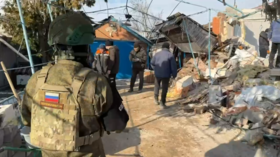No guarantee Japanese government will do a better job than TEPCO at Fukushima
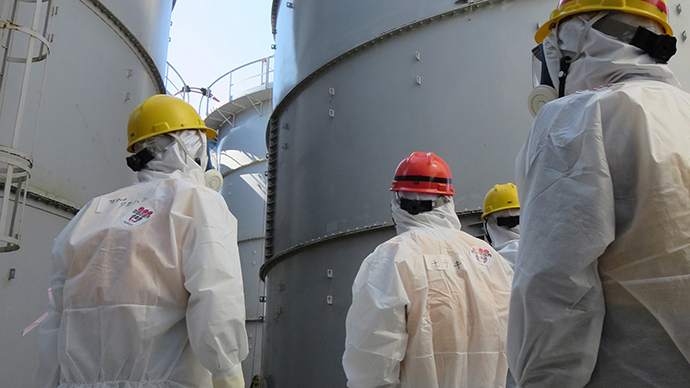
TEPCO has a long record of covering up accidents, but giving more control to government agencies means the crisis will be managed by those who allowed TEPCO to operate Fukushima the way it did, Shaun Burnie, independent nuclear consultant, told RT.
RT:Shaun, the situation is looking pretty serious, but how much are we really being told by the operators TEPCO and indeed the Japanese government?
Shaun Burnie: Well, I think, the first thing there is to say is that it is perhaps one of the most complex nuclear sites that has ever been a challenge for the government or industry to deal with in the last 60 years of the atomic age.
So, it was always going to be a challenge, and as for us, in time of the accident of two years ago, we had really no confidence that this was a disaster that was going to have any new conclusions.
So, in terms of what TEPCO was informing the public about, I would say, that TEPCO is both unaware itself of the scale of the problems: contamination, the leaks on the site.
Just an anecdotal example: workers that were monitoring around
the tanks, and there are thousands of tanks containing highly
radioactive water – when they were monitoring a few weeks ago,
they were actually not themselves carrying those badges, and they
themselves were using imaginary equipment that was only able to
measure only up to a certain level. So, TEPCO themselves do not
have the full picture. Probably, no one has the whole picture.
The Japanese government will initiate “prompt, comprehensive steps” to clean up the wrecked Fukushima nuclear plant amid lingering doubts over the plant owner's ability to handle the crisis, Prime Minister Shinzo Abe told reporters on Monday.
RT:And those workers, you’re talking about, what sort of danger are they in now? They’ve been working there without being aware of the high levels of contamination.
SB: Those workers are probably underpaid, probably unaware of radiation training. There have been thousands of them working there in the last two and a half years. There will be thousands more working over the coming years. But just to put it into perspective, the Chernobyl accident in 1986 – there were half a million Soviet conscripts that were brought in to deal with the accident in the months and a few years after. So, they are dealing with a very complex three reactor meltdown and spent fuel in the pools. So they probably don’t have enough workers on site, there are workers undoubtedly getting doses that we’re not being told about and they themselves are not being told about. And then going forward, this is a problem that is only going to get worse.
RT:In what way? Is this threat to localize or could it get worse in terms of potentially affecting people beyond the facility?
SB: Right, well. As soon as you have to deal with a
reactor, it is going through a meltdown and they are using very
large amounts of initially seawater and then freshwater. That
water is going to accumulate and indeed has, and we have ranging
of between 330 to 400 thousand metric tons of highly contaminated
water in tanks and in the trenches below the reactors.
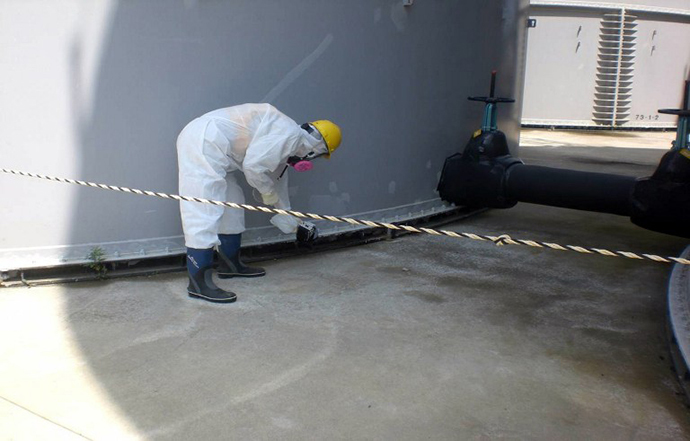
The problem is, because of the location of Fukushima, the mountains to the East, we have migratory water coming through the ground system and also on the surface to the rate of around 4000 tons a day coming on to the site. And around 400 tons a day actually additionally adding to the existing water in the trenches. So this water has to be contained.
Fukushima radioactive impact is three times worse than Chernobyl’s
RT:We don’t want to get too complicated here, of course, this water coming in, it has to get out somewhere. The ocean is not so far… How will this affect the Pacific, bearing in mind currents there, is there a chance that this radioactive water will actually spread far beyond the coastline?
SB: Well, it depends on what type of radioactivity you’re talking about. Heavier material will tend to concentrate along the coastline; the more soluble material will indeed spread with ocean currents within weeks, months and years. The problem is there is already radioactivity entering the environment. Absolute certainty. The amount on site, in terms of science, is that there is three times as much caesium, it is a very dangerous radioactive material, three times as much as was released by the Chernobyl accident, is currently sitting in the trenches and in the tanks at the Fukushima site. Another earthquake, one of those tanks or more of those tanks rupturing, and we’d see a massive release into the Pacific Ocean.
RT:So, just in a word, finally, it’s almost bigger a crises than what we saw at the beginning when the tsunami struck that plant. It seems pretty worrying.
SB: It’s a on-going crisis. Certainly, the explosion of the reactors and the rest of it has become even worse than it was at the time. Certainly, it was more serious in some ways.
RT:There are concerns the Fukushima operator, TEPCO, has mishandled the crisis. What's your assessment of their actions?
SB: The problem is, we’re still going on for years if not for decades. TEPCO electric has a 30-40 year record of deceit, not telling the truth and covering up accidents at its nuclear reactors. So this company managing a nuclear disaster and still managing it today means you are going to have the same approach – lack of transparency, dishonesty and not telling the truth to government, the public and the media. So we should not be surprised of TEPCO electric not being open, at the same time it’s a great challenge to any nuclear utility. I don’t believe that any nuclear company on the planet or government agency would be able to manage this situation without risk of accident or release of radioactivity. It’s clear that TEPCO cannot manage the situation. The government is likely to step in this week, taking more direct control. On one level it may sound like a good idea, on the other hand these are the same government agencies that allowed TEPCO to operate these reactors in the way it did over the years. So I don’t have any confidence that the Japanese government will do a better job than TEPCO electric.
The statements, views and opinions expressed in this column are solely those of the author and do not necessarily represent those of RT.


